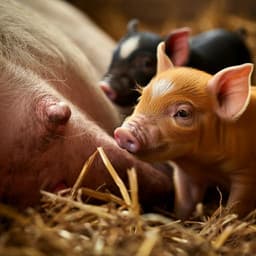
Agriculture
Agriculture increases the bioavailability of silicon, a beneficial element for crop, in temperate soils
M. Caubet, S. Cornu, et al.
This groundbreaking study reveals how agriculture influences plant-available silicon in France's temperate soils. Conducted by M. Caubet and colleagues, the research shows that cultivation practices, particularly liming in acidic soils, significantly enhance silicon levels. Discover the surprising implications for wheat cultivation and soil health!
Related Publications
Explore these studies to deepen your understanding of the subject.







